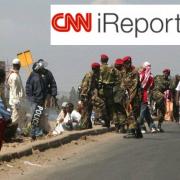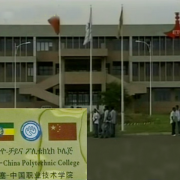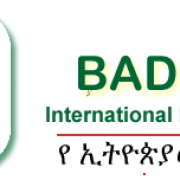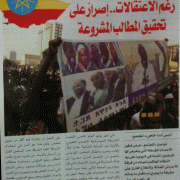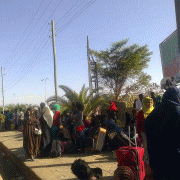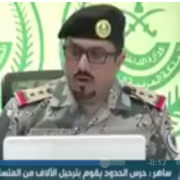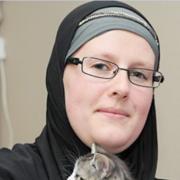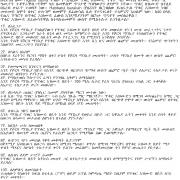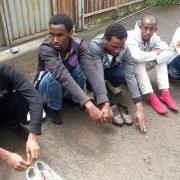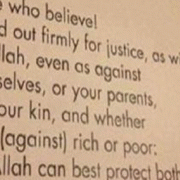Amnesty International Criticizes Ethiopian Gov't Over Rights Violations Against Muslim Protesters
Widespread violations feared in clampdown on Muslim protests Amnesty International is concerned over the fate of scores of Muslim protestors arrested in Ethiopia during July. The arrests took place in the context of ongoing protests against alleged government restrictions on freedom of religion in the country. The detainees are at risk of torture and other ill-treatment, and there have been numerous reports of beatings in detention against those arrested. Some detainees have been held in incommunicado detention since their arrest without access to family members, often in unknown locations. Amnesty International is further concerned at widespread reports of the beating of protestors during demonstrations, and other examples of excessive use of force by the police during the arrests and the dispersal of protests, resulting in many injuries to protestors. Those arrested in July include members of a committee of representatives selected by the Muslim community to represent their grievances to the government and at least one journalist. Amnesty International fears that the arrests of community leaders, protestors and others in the Muslim community, and the pending charges against certain individuals, are based on their lawful exercise of the right to freedom of expression and the right to organize and participate in peaceful protests. Addis Ababa’s Muslim community has staged regular peaceful protests throughout 2012 over grievances including an alleged government-backed effort to impose the teachings of the minority Al Ahbash sect of Islam on the majority community, and government interference in elections for the Supreme Council of Islamic Affairs. Ethiopia’s Constitution prohibits state involvement in religious affairs. The protests have regularly attracted large numbers of people over the last six months.
On 13 July a police operation targeted a gathering at the Awalia Mosque and Islamic school compound, in north-west Addis Ababa. The gathering was reportedly discussing further protests and also planning and preparing for a Sadaqah (charity) event two days later, to distribute food to people living in poverty. On entering the compound, police are alleged to have used excessive force against those present, beating many men and women in the compound and made numerous arrests.
The same evening, in response to news spreading about the events at Awalia, large numbers of people headed towards Awalia. Witnesses estimate several thousand tried to reach the compound. But the roads were blocked by police and violence flared between police and protestors. Protestors allege that police again used excessive force including beating protestors. Several sources say that police fired live ammunition, resulting in some serious injuries among the protestors.
Large numbers of those on their way to Awalia were arrested. The government confirmed that over 70 people had been detained on 13 July. Protestors and witnesses reported numbers of between 100 and 1,000 people arrested. Those detained were taken away in large military- style trucks. Detainees were first transported to Kolfe Keranyo police station, and later transferred to police stations closer to their respective homes, according to reports. Many of those detained have alleged widespread beating of detainees inside the police stations. One woman reported that she had been subjected to sexual violence by a police officer during the night of 13 July.
A large proportion of the detainees were released without charge after one or two days’ detention. However, many continue to be detained. Several members of the Awalia student council are reported to be detained in Maikelawi federal police detention centre in Addis Ababa, notorious for the use of torture against detainees during interrogation, as documented on numerous occasions by Amnesty International. Whilst the family of one detainee has been able to have contact with their relative, the families of the other members of the student council say they have not been permitted to contact or visit their relatives, in violation of the right of all detainees to have access to family members.
Other detainees arrested at Awalia on 13 July are reportedly being held in incommunicado detention without access to family members, in unknown locations. Ethiopia’s Criminal Procedure Code demands that all arrested persons are brought before a court within 48 hours to challenge the legality of the detention. Further, incommunicado detention, without access to family members and legal representatives increases detainees’ risk of being subjected to torture or other forms of ill-treatment.
Between 19 and 21 July, members of the committee of chosen representatives of the Muslim community were arrested, including Chairman Abubakar Ahmed, Spokesperson Ahmedin Jebel and committee members Kamil Shemsu, Sultan Aman, Adem Kamil, Jemal Yasim and Meket Muhe. The Committee members are reported to be detained in Maikelawi and are therefore at risk of torture or other forms of ill-treatment.
Read the Rest of Article on amnesty.org


